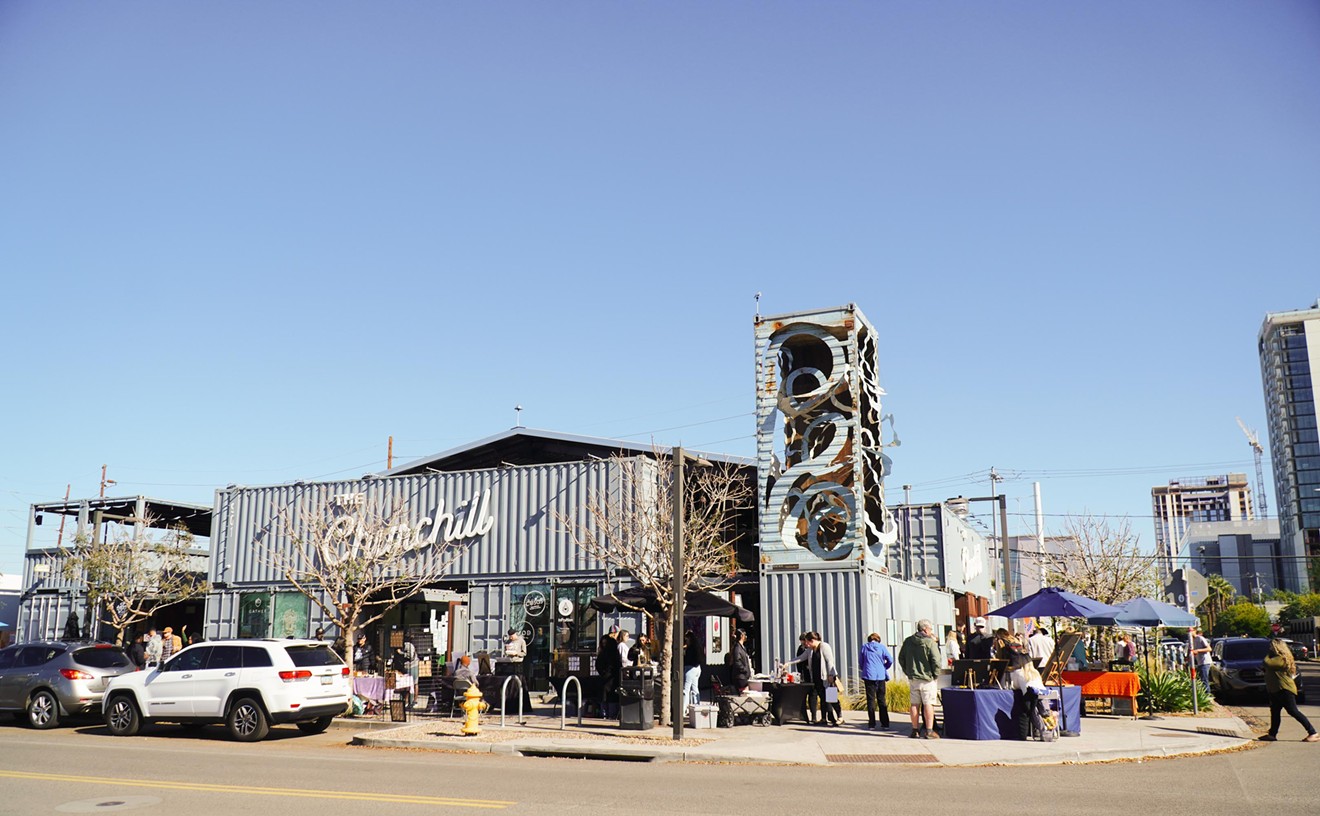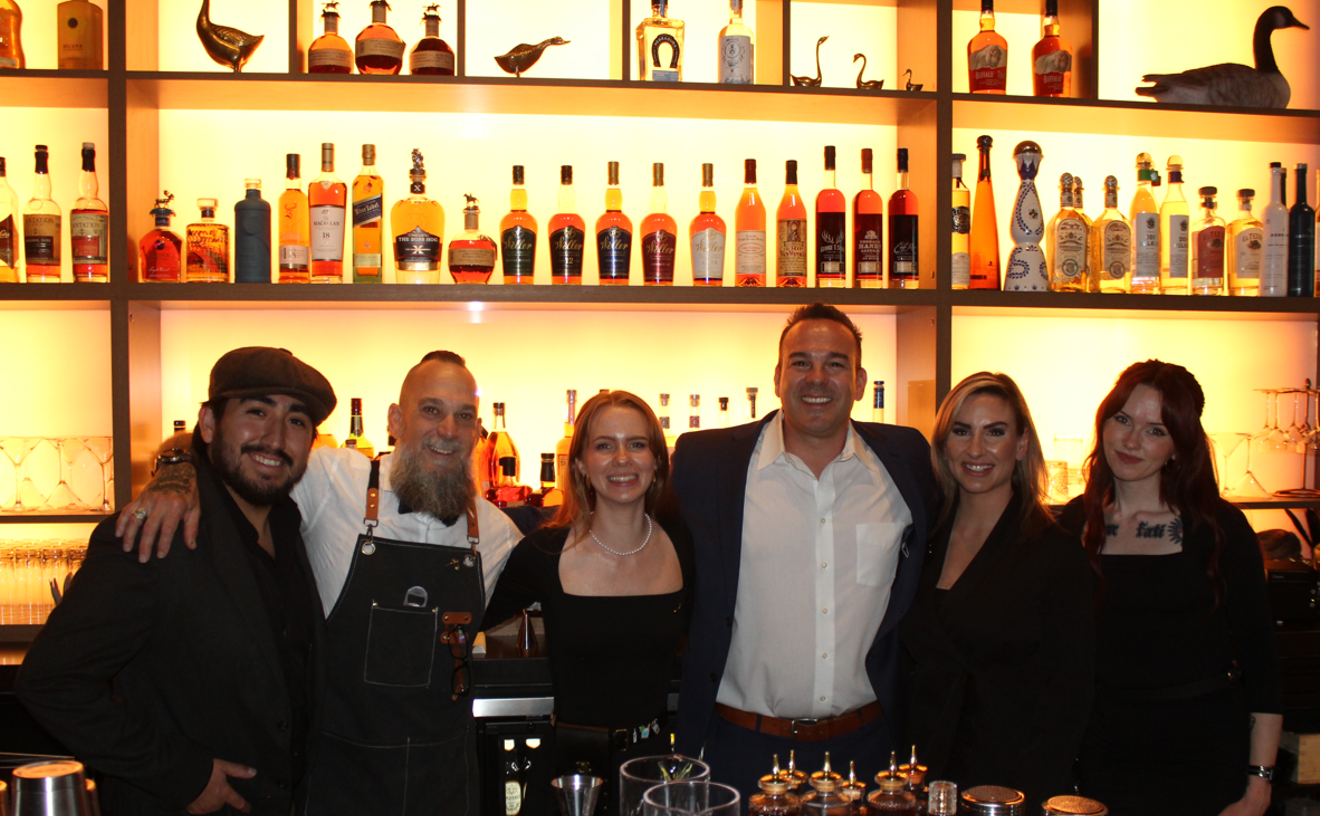Wong Kar Wai's adventures in Cinemascope, now a largely abandoned format, began with 2004's 2046; by then he had already proved himself capable of reaching baked-Alaska heights of visual force with a body of films (and actors) known for their bleary urban lacquer and radiant force fields of loneliness. And while the opening frames of his latest film, My Blueberry Nights, are flooded with the gooey innards of various pastries, what follows leaves the promise of excess of any sort unfulfilled.
Wong calls Chungking Express, his fourth film but first international calling card, "a road movie of the heart." My Blueberry Nights, his first film in English, has been called an actual road movie, but it's more of a destination film with three settings: East goes West when Elizabeth (Norah Jones) ditches New York with a broken heart and lights out for Memphis and the gambling hub of Ely, Nevada. Known as "Lizzie" in Memphis and "Beth" in Nevada, the shell-shocked Elizabeth has transformative interactions with the locals — add a poison mushroom and call it Into the Mild — then returns to New York healed and with a great new hat.
But the lovelorn cops in Chungking traverse a greater distance within the perimeter of the Midnight Express deli and the Chungking House hotel than Wong manages with all of Route 50 here. Having plucked Jones from the realm of adult-contemporary radio on purely aesthetic grounds, it's hard to tell who failed whom: She looks beautiful, if benign, but lacks the magnetic ache that carries Wong heroines through their thinly plotted paces and densely layered close-ups. Jones can't be entirely blamed for having an easier time chewing on day-old prop pastry than some of Wong's lines (he co-wrote the script with Larry Block). Still, her delivery is oddly behind the beat, a problem of phrasing curious for a musician, particularly as singer Chan Marshall shows up as a mysterious ex and slays with her inspired utterance of "sen-ti-men-tal."
The story begins in New York, where Elizabeth has a Snapple-throwing shit fit outside of a diner owned by Jeremy (Jude Law). Elizabeth's ex-boyfriend has recently been spotted in the diner with a new love, and she is beside herself with grief; in the first of a series of heavy signifiers, she hands Jeremy a set of her ex's apartment keys, which he plops into a goldfish bowl full of similar cast-offs. Jeremy offers solace in the form of brisk advice and a slice of the blueberry pie no one ever orders. A series of brief diner encounters ensue, with the sweetness of the couple's exchanges sometimes literally written on their faces; cinematographer Darius Khondji (replacing longtime Wong collaborator Christopher Doyle) shoots many of these scenes through the café's window, itself covered in advertisements for the cookies, pies, and cupcakes sold inside.
Elizabeth hits the road with Jeremy's heart half in tow; he steals a kiss from her while she sleeps, and she sends him chaste postcards from the two cities where she ekes out a living for the better part of a year. Wong salutes Tennessee Williams in the Memphis segment, and while he clearly had a gay old time, the story between Arnie (David Strathairn) and his estranged wife Sue Lynne (Rachel Weisz) feels more like a tangent than a chapter, and the veering tone isn't helped by Wong's persistent arsenal of jump cuts and two-shot tinkering. In Wong's Memphis, all a man leaves behind is a bad woman and a bar tab, and while Strathairn's knobby elbows alone will break your heart, Weisz struggles with her less forgiving stereotype: the stone-cold slattern. Natalie Portman fares better as a troubled poker babe in Nevada, and can fill the empty space Wong leaves, like an ellipsis, in his corner-bound close-ups with something resembling human complexity.
The disappointment here doesn't have much to do with Wong doing America — he's been doing America for years, even in Chinese — but with Wong doing Wong, and not up to his own standard. Toward the end of Happy Together, Wong's other road movie, Tony Leung's character says, "Turns out that lonely people are all the same." Not quite.









